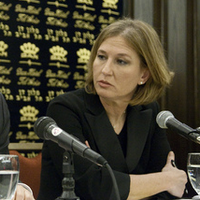The government of Israeli Prime Minister Benjamin Netanyahu finds itself, yet again, in the midst of a major diplomatic crisis. In the wake of the disastrous May 31 raid on the Mavi Marmara -- part of the flotilla that sought to break the blockade of Hamas-run Gaza -- the country has unsurprisingly come under furious diplomatic fire. So far, though, personal criticism of Netanyahu's leadership has not become the primary focus of the attacks, as international charges have targeted the country, rather than its leader.
The diplomatic disaster, however, presents Israeli opposition politicians with an opportunity, and a most delicate challenge. Netanyahu's -- and Israel's -- woes could help strengthen the opposition's standing, or even help it wrest power from Netanyahu's right-wing coalition. But an attempt to gain political advantage at a time of national crisis could easily backfire.
This is an intricate dilemma for opposition leaders: how to stand up for the country, hold strong to their principles, and at the same time improve their political position and their chances of returning to power. In short, how do they wound their political rivals without injuring themselves and their country in its hour of peril?

